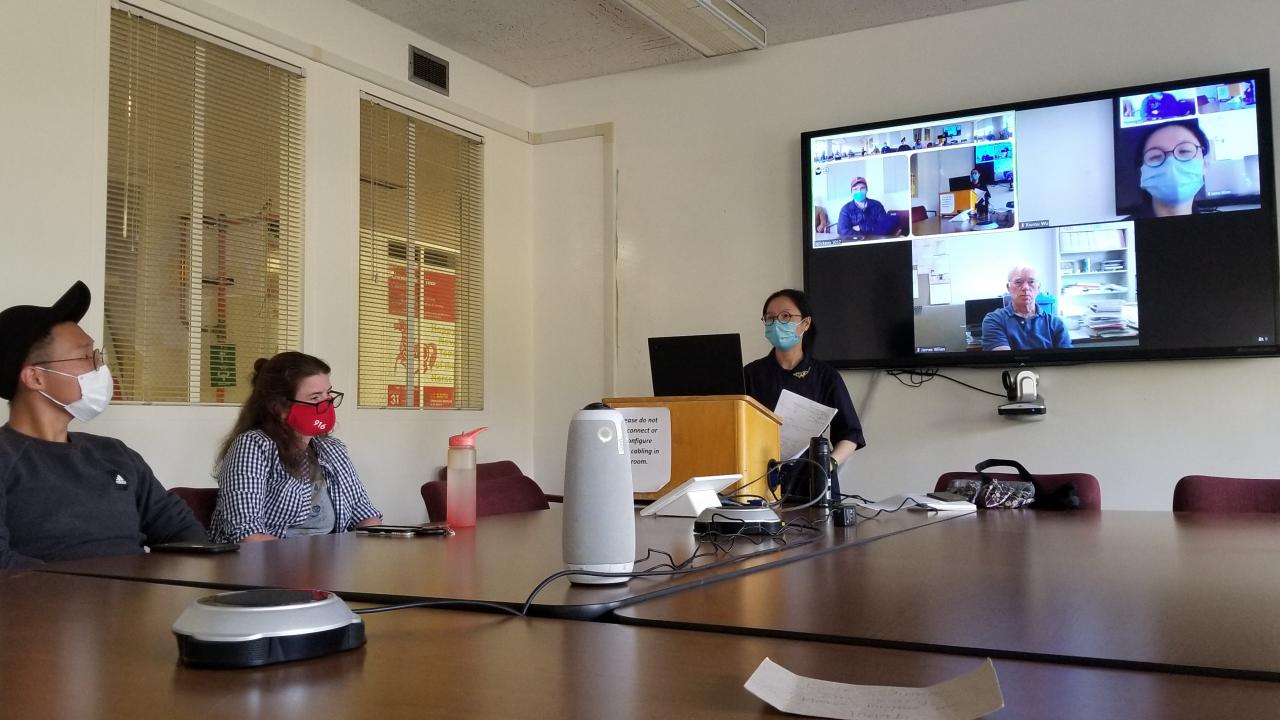
Lab Seminar - Modeling ecosystem service conflicts in China's Lake Poyang
Xiurou Wu updated her research on addressing ecosystem service trade-offs in China's Lake Poyang. This research proposes a model of ecosystem service management that takes into account the conflict between fisheries operations and conservation of endangered and threatened waterfowl, specifically Siberian Cranes. The model is calibrated to fit the example of China’s largest freshwater lake, Lake Poyang, the wintering ground for the last surviving population of Siberian Cranes. It captures important features of the lake's hydrology, ecosystem, and economics to investigate the impact of uncoordinated and coordinated management of fishing and bird conservation. The current regulations do not account for the externality fishing imposes on the endangered cranes, which results in their reduced population size. Xiurou argues that the fishing season should be extended until the end of the wintering season to better conserve the cranes. The model quantifies the cost of extending the season and can be used to design an optimal sustainable management policy.